Alumni Stories
Wondering what you can do with a degree in English or creative writing after graduation? Check out these stories from our recent alumni who have are working in publishing, healthcare, technology, politics, and other fields.
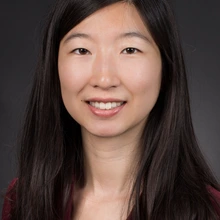
Aishan Shi (2013, English, Biochemistry, Molecular and Cellular Biology)
Medical student at UA College of Medicine
“I am always thankful that I majored in English. It has provided me the most skills to become a thoughtful physician compared to my other studies in college. The attention to detail that close reading and research teaches us has allowed me to efficiently read through my patient’s histories and clinical notes to find pertinent information without missing important facts. Most importantly, studying the humanities gave me an appreciation for the richness and diversity of individuals and societies, allowing me to approach the many populations I serve with an open and compassionate mind.”

Isabel Garcia (2016, English)
M.A. student in Journalism at NYU’s Arthur L. Carter Journalism Institute
“What I appreciate most about majoring in English is that literature was the medium through which I developed the transferable skills listed on many job applications. While I could have enhanced my critical analysis skills in any major, the poetry and prose I analyzed as an English major contain universal themes that reveal a commonality in the human experience. Studying different interpretations of “the universal behind the particular,” as Professor Scruggs would say, was applicable to my life outside the classroom.”
Kaitlin Hooker (2017, English, Political Science)
Press Assistant for U.S. Congress Representative, Tom O’Halleran
“Majoring in English usually makes me the odd one out in a room, but in a good way. In college it made me a unique applicant when applying to join clubs and organizations, and then applying for jobs and fellowships. I've learned that every single job or opportunity you pursue in your life will involve writing of some kind, and being a strong writer will always make you a more desirable hire and a more valuable employee, giving you an edge over others. I am thankful every day for the writing skills I was able to hone while majoring in English, as they've consistently put me ahead. Being an English major also means you learn so much about the world around you, about people and trends and history.”

Pritha Prasad (2012, English, Creative Writing)
Assistant Professor of English at University of Kansas
Majoring in English and/or Creative Writing teaches you not only about identity and culture, but also about how to navigate the world and communicate with others. The kinds of critical thinking and analytical skills I gained from my studies at UA have done much more than help me in my academic career. They've taught me how the world works and how important it is for me to be critical in all aspects of my life. Furthermore, the ability to write well and persuasively is a skill that is valuable in nearly any career in any industry. The only programs of study that emphasize the importance of this skill with the same rigor, nuance, and sophistication are English and Creative Writing.
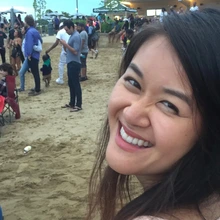
Stephanie Choi (2017, English; Literacy, Learning, Leadership)
Public Service Fellow at Cuyahoga County Department of Sustainability
I loved the English major and Creative Writing minor. Through my courses, I gained hard skills in close reading, writing, crafting, and discussing literature/art. More importantly, I learned how to be a better thinker, wonderer, and curious soul. In this first year of post-grad life, I've realized that adulting is very difficult and the 'real world' is, in fact, a different space/place to exist in. I feel that so much of what happens in life/career/the world is/will always be frustrating, confusing, absurd, and mostly unpredictable; studying English and Creative Writing helped to shape my mind/perspectives so that I navigate life & the world with a deeper appreciation for its absurdity, and recognition of all its beauty.
Larry Hogan (2013, Creative Writing)
Information Developer Team Lead at IBM
Favorite experience from undergrad? In the 15 minutes we had between classes, I was walking with Professor Hurh, pouring out my heart explaining my difficulties with his Literary Analysis course, only to have him rub his chin, look at me sideways and say, "Hogan. Don't try to change the poem to fit your thoughts. Change your thoughts to fit the poem. Gotta go. Bye." It took me some time figure out what he was getting at. But I realized that the background noise of my own paradigm of understanding was stopping me from grasping the meaning that was encapsulated in the poems we read. Overcoming this hurdle, opened up my perceptive abilities. This enhanced ability continues to serve me well in my professional life.

Rose Brandt (2010, Creative Writing)
Publicity Manager, University of Arizona Press
The beauty of an English/Creative Writing degree is the fact that it is in no way limiting. It's foundational. An English/Creative Writing degree exposes you to diverse perspectives. It teaches you to think critically, to be quick on your feet, and adapt. These are the sort of skills that are applicable to nearly anything and can only support your interests, no matter what they might be. The English department is a place that's open to cross pollination. Take advantage of that. If you have an interest in something outside of what you might consider a traditional English track, talk to your adviser. Intern wherever you can. Get out there and apply yourself, because no matter what you want to do or where you want to go, honestly, an English degree can help get you there.
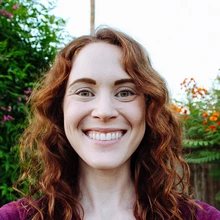
Hannah O’Regan (2011, Creative Writing)
Senior Content Strategist, W. P. Carey School of Business, Arizona State University
“I learned early on that my point of view was one among many. I discovered the importance of finding and reveling in both different and common ground. I began to understand and accept my smallness, knowing that we are all small parts of the wider, bigger world. I began to see humanity as a collection of humans, culture as a form of togetherness, and all of us as perfectly imperfect and similarly dissimilar parts of a greater whole.
If I didn't spend my formative years exploring and considering diverse topics and perspectives from equally diverse cultures and communities, I wouldn't have drawn any of the above conclusions, much less become the person or the professional I am today. My humanities background shaped my worldview then and continues to shape it now, which is a gift I grow more and more thankful for with every passing year.”
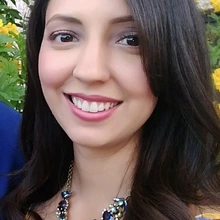
Tiffany Mendibles Muñoz
Mentor Teacher for the Culturally Relevant Department, TUSD
I appreciated the English classes that offered diverse perspectives. For example, I found myself enjoying the courses that had African-American, Native American and Mexican-American perspectives. The literature within those classes motivated me to look at literature from a critical perspective and I was able to use those skills towards other pieces of literature that I have always found difficult like Shakespeare or Beowulf. It is okay to major in English if you struggle with reading critically and writing. If you love reading, everything will fall in place if you put your mind to it. I think through my experience with struggle, I knew I wanted to be a role model for someone else who may also be dealing with the same stresses that I have dealt with.

Catherine Killough (2012 English, Creative Writing)
Roger L Hale Fellow at Ploughshares Fund
When I moved to Washington, I was worried I wouldn't be able to secure an internship given my background in the humanities. But instead of trying to explain away my English degree, I decided to embrace it in my cover letters and interviews. After I landed my first (and second and third) internships, I realized that whether you are working in Congress or at an NGO, employers value a good writer with little experience over a bad writer with an impressive resume.
Don't buy into the stereotype that English is a stuffy, old, irrelevant degree. There is no better means of navigating this hyperconnected world than by equipping oneself with the skills of an English major, which include a sensitivity to cultural difference, a lens of history, and a talent for communication. In a rapidly evolving job market, specialized programs abound. But an English program is perhaps the most versatile, allowing you to develop the tools to adapt and excel in an uncertain future. Plus, it's a great gateway major to a host of other programs and paths you may take. Studying early American literature in the context of nationalism helped me unlock my interest in a career in diplomacy.
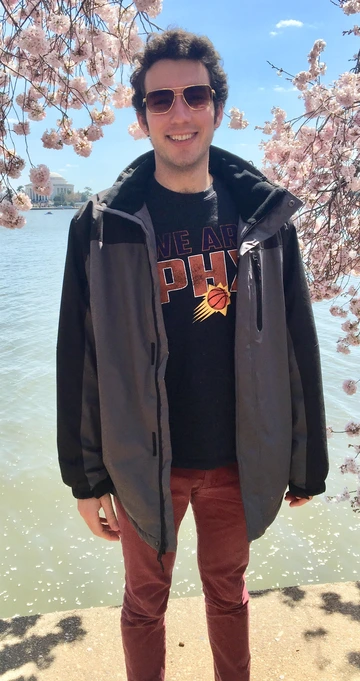
Jacob Winkelman (2017 English, Political Science)
Communications Associate at Capital Litigation Communications Project
Majoring in English was one of the best decisions I made during college. I am so appreciative of the way in which my English classes gave me the tools to analyze critically a wide range of texts, develop my writing, and improve critical thinking. Writing well and analytical reading are a major part of any job, and I’m so thankful for all of the English professors who helped me to improve upon those crucial skills.
English and creative writing majors can go into the fields of business, law, teaching, communications, politics, journalism, and dozens of other professions. I know it cuts against the conventional wisdom to say that an English major has more opportunities than many other majors, but having tangible communication, writing, and critical thinking skills give us a leg up. No major alone can guarantee a successful career, but with an English or creative writing major, we possess the tools to succeed in nearly every field.

Valerie Hoke (2015, English)
Editor at Chatterblast Media
Since entering the marketing industry, I’ve observed a glaring difference between people who learned how to write and people who learned how to market. College students who like to write often select majors like communication, marketing, or advertising . . . But those fields don’t teach you to write for the sake of writing well—they teach you to write to persuade people . . . When my company hired me full-time after proving myself via an internship and a part-time gig, it dawned on me that all three of our writers, myself included, were not trained in marketing in any way—we were English or journalism majors. And to me, it’s no coincidence that our work stood out. I don’t think I fully realized the power and value of my English major until that moment.

